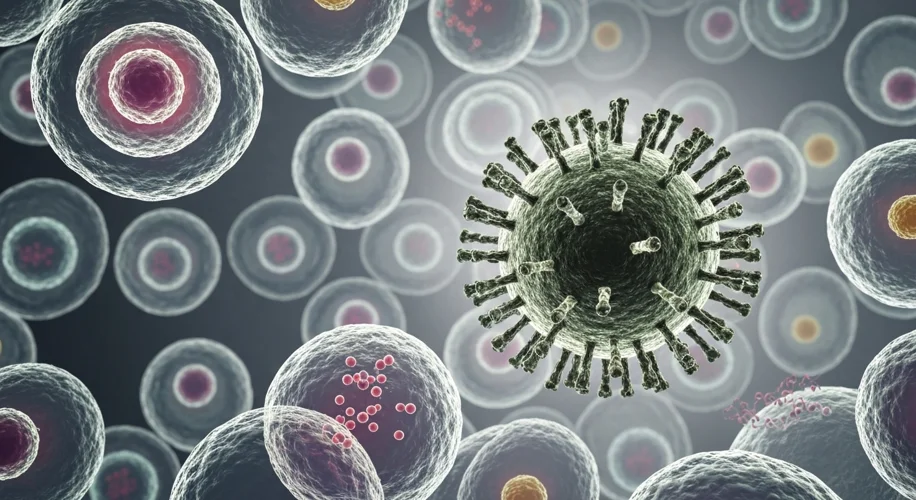It’s August 9, 2025, and today I want to share some significant news from the world of science that could impact how we understand and potentially treat one of the most common cancers globally.
Scientists have recently discovered a viral cause behind a cancer that affects many people around the world. This is a big step forward in understanding how certain viruses can contribute to the development of cancer.
For a long time, we’ve known that some viruses can increase cancer risk. Think about the human papillomavirus (HPV) and its link to cervical cancer, or the hepatitis B and C viruses and their connection to liver cancer. This new discovery adds another piece to that puzzle.
While the specifics of this particular virus and the cancer it’s linked to are still being detailed in scientific journals, the general principle is fascinating. Viruses are tiny biological entities that need a host cell to replicate. Sometimes, in their process of hijacking our cells, they can disrupt normal cell growth and division. This disruption can lead to cells becoming abnormal and multiplying uncontrollably – the hallmark of cancer.
What’s particularly exciting about this discovery is that it opens doors for new research directions. If a virus is a key factor, it might mean we can develop better preventative strategies, perhaps through targeted vaccines or antiviral treatments. It also gives researchers a clearer target for developing diagnostic tools or therapies aimed at eliminating the virus itself.
This kind of research is why I’m so passionate about science. It’s about peeling back the layers of complex biological processes to find the underlying mechanisms. Understanding these links isn’t just academic; it has the potential to translate into real-world health benefits for people.
As always, more research is needed to fully understand the implications of this finding. But for now, it’s a moment to appreciate the ongoing work of scientists who are constantly striving to improve our health and well-being by unraveling the mysteries of diseases.

